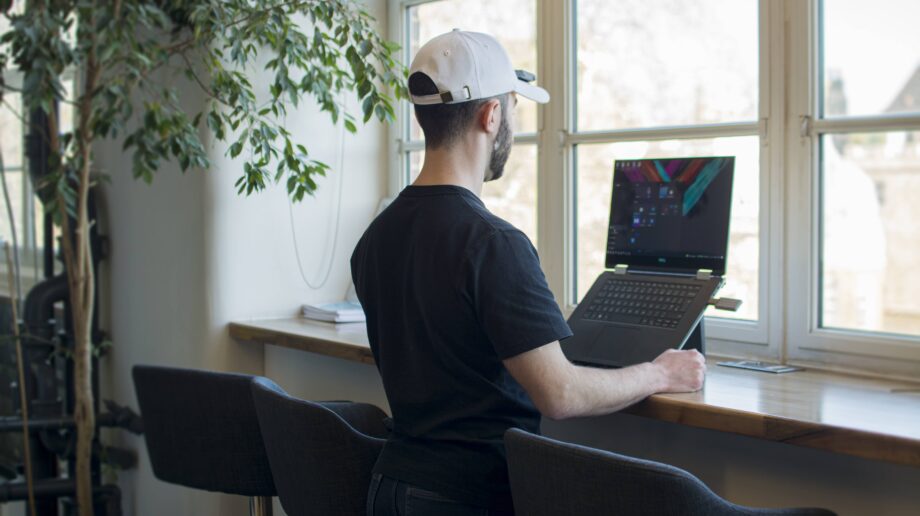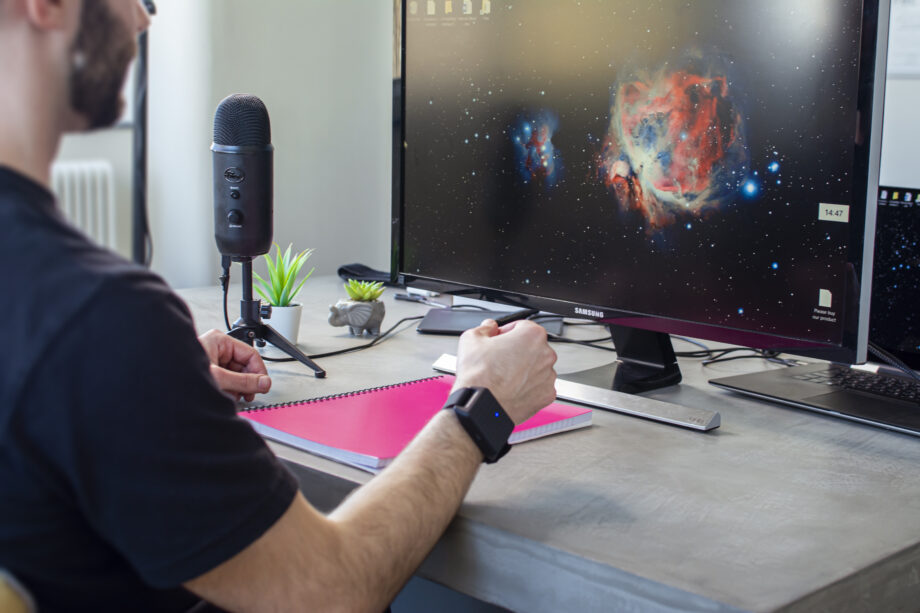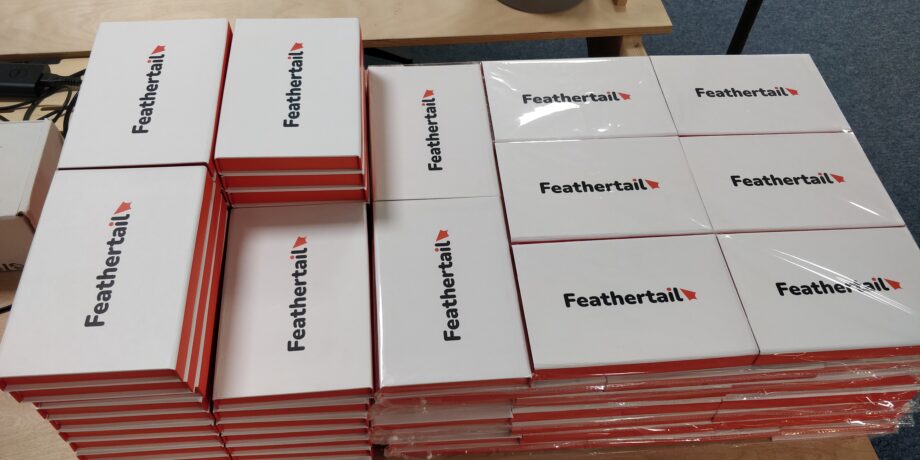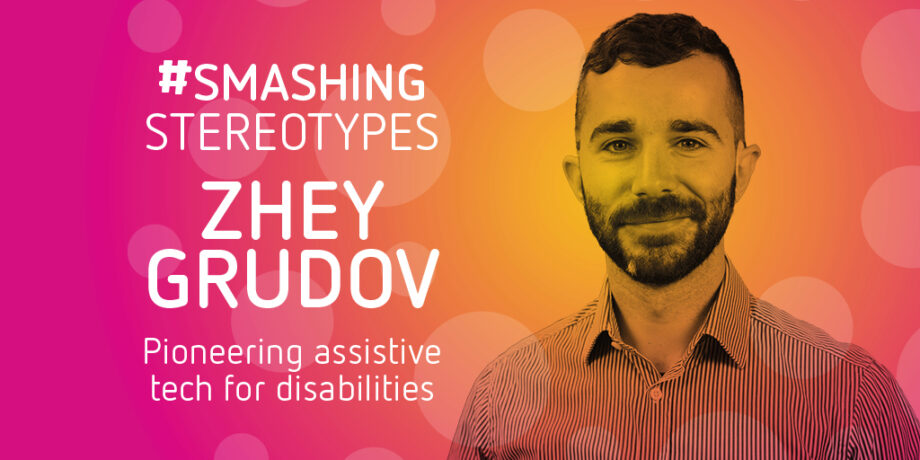Zhey Grudov
Assistive tech founder
Founder and CEO, Feathertail
Pioneering assistive tech for disabilities
Zhey is a 2022/23 Innovate UK Young Innovator winner.
Zhey Grudov was left with no choice but to leave his IT consulting job due to severe hand pain. He soon founded Feathertail, where he created a wearable, ergonomic mouse to support others who face chronic pain in their hands. Rooted in his early passion for science and technology, his STEM journey demonstrates his knack for creating innovative solutions to real-life problems.

A childhood of wonder and curiosity
Growing up in Bulgaria just before computers became popular, my childhood entertainment revolved around books rather than social media. I developed a passion and interest in science through scientific encyclopaedias and magazines.
I would spend hours poring through issues of National Geographic marvelling at the natural world and absorbing as much knowledge as I could. When the internet emerged, however, my love for technology grew. I was intrigued by rapid advancements like the Internet of Things and was hungry to learn more.
In my early teens, I was certain I’d become a scientist but opportunities in science are limited in Bulgaria. I soon found myself working in business and it was a series of unforeseen events that eventually brought me to where I am now: a founder of my own business.
Creating innovative solutions to physical challenges
During my early career as a business analyst for a consulting company, I developed repetitive strain injury in my hands, making it challenging to hold a computer mouse. The pain was so debilitating that I was left with no choice but to resign.
When searching for other types of computer mice, I struggled to find a comfortable alternative. My physical limitations forced me to take matters into my own hands and soon Feathertail was born. Our product is a wearable ergonomic computer mouse for people with dexterity impairments or repetitive strain injury.

Real-life impact
My vision for Feathertail is to make technology more accessible for people with disabilities, injecting innovation into a space that has been somewhat overlooked. The goal is to provide effective, affordable options for individuals facing physical challenges.
Designing software or solving engineering problems presents unique challenges. Every aspect of running a business, from technology to marketing, has its own set of hurdles. We made mistakes along the way, but the journey, though challenging, has been a learning experience.
My proudest achievement is finally taking the Feathertail device to market. My team and I overcame so many challenges. For example, our limited budget meant that we couldn’t outsource the technical design of the device, so I had to learn a lot about electronics prototyping and even wrote much of the software that powers the device. This required brushing up on my physics and maths to learn about acceleration, angular velocity, magnetic calibration and even up to use mathematical concepts like quaternions. I certainly wish I paid more attention to these subjects in high school!
We went through many iterations of the product design to ensure the product met our customers’ needs. To finally see the product on shelves has been immensely rewarding for us.
Support for the business
To build Feathertail, we participated in various support schemes to get funding. We worked with universities, and engaged in various STEM programmes. For instance, I worked with students from Queen Mary University to design and develop the website for the business. And I took a marketing intern on board for six months through the Kickstart scheme. Students from Brunel University helped with marketing research and Aston University helped fund part of the development costs. Collaborating with other young people and benefiting from their support has been rewarding.
The UK’s innovation support infrastructure has also provided valuable support to growing my business. For example, the Innovate UK Young Innovators award contributed financially, helped me expand my network and develop my skillset by connecting me with business mentors. The Next Steps initiative and the London Business Hub were invaluable sources of advice on various topics, such as marketing, hiring and legal requirements. And there’s a lot more support out there!
I really believe initiatives supporting students in STEM and showcasing the diverse paths within STEM are crucial. Focusing on practical education, getting really stuck into your interests, and emphasising the real-world applications of STEM are hugely impactful.

A recipe for success
First of all, you’ll be surprised how useful the things you learn in school can be. Studying hard really does pay off! It teaches you practical skills and develops your problem solving.
Secondly, don’t neglect your soft skills. Every field of work, especially business, is predicated on building relationships. Don’t get discouraged if you’re introverted, or shy, as there are so many resources available to help you.
Finally, get involved in university projects and do internships to enhance your CV and open doors to opportunities. It will make your life a lot easier!
For those looking to get into entrepreneurship, the best advice I can give is to find somebody who’s done what you want to do and learn from them as much as you can. Then repeat that with as many people as you can get access to. Fortunately, in the UK there is a strong support network for people who want to start a business. So good luck!
Click here for more scientists who are Smashing Stereotypes.
